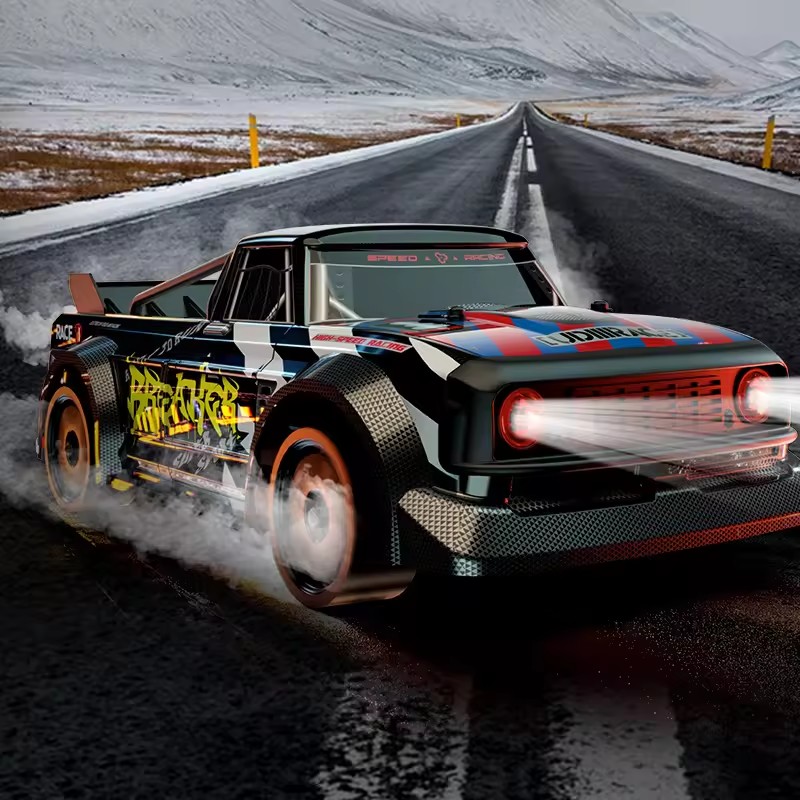The remote control (RC) car toys market has always been a favorite domain for tech enthusiasts and hobbyists alike. Offering a thrilling blend of technology, entertainment, and competition, RC cars have evolved from simple toys to sophisticated devices equipped with advanced features. As we look ahead, the future of the RC car toys market appears to be full throttle, powered by innovation and fueled by a growing demand for outdoor and indoor gaming experiences.
In recent years, advancements in technology have significantly impacted the RC car toys market. Manufacturers are incorporating cutting-edge technologies such as LiPo batteries, high-torque motors, and 2.4 GHz radio transmission systems into their products, providing users with improved speed, durability, and control range. These technological enhancements have not only elevated the performance of RC cars but have also expanded their appeal across diverse demographics.


One of the most prominent trends in the RC car toys market is the increasing popularity of scale models. Hobbyists and enthusiasts are showing a preference for RC cars that offer a higher degree of realism, right down to mimicking the exact details of actual car models. This trend has led to the development of RC cars with detailed bodywork, precise weight distribution, and authentic sound effects, offering an immersive experience for users.
Another driving force behind the growth of the RC car toys market is its adoption in organized sports and competitions. RC car racing has become a global phenomenon, with events and championships taking place around the world. These races offer serious competition for professionals and amateurs alike, complete with off-road tracks, timed trials, and even international tournaments broadcasted on sports networks. The competitive aspect of RC car racing has not only boosted the sales of high-performance RC cars but has also attracted sponsorships and media attention.
The educational value of RC cars should not be underestimated. They serve as valuable tools for introducing children to principles of science, technology, engineering, and mathematics (STEM). Through assembling and operating RC cars, young enthusiasts learn about mechanics, electronics, and aerodynamics. Educational institutions and parents alike are recognizing the potential of RC cars as educational aids, further propelling their demand in the market.
The versatility of RC cars is another factor contributing to their market growth. They are no longer confined to flat surfaces; modern RC cars can navigate through various terrains, including rocks, mud, sand, and water. This adaptability has made them popular among outdoor adventure enthusiasts who use them for exploration and recreation. Furthermore, urban settings present no barrier; indoor-specific RC cars have been designed for those with limited space or inclement weather conditions.
The integration of mobile apps and software in RC car toys has opened up new horizons for user experience. With the help of dedicated apps, users can control their RC cars via smartphones or tablets, allowing for easier customization and control adjustments. Some apps even feature virtual reality (VR) modes, where users can experience the driver's perspective through VR headsets, adding a layer of realism previously unattainable.
Environmental concerns have prompted manufacturers to consider sustainability in their product design and packaging. The introduction of eco-friendly materials and recyclable plastics in RC car production reflects a growing awareness among consumers and companies alike. Battery life and energy efficiency have also seen considerable improvements, aligning with the global push toward green technology.
As the RC car toys market moves forward, it is evident that innovation will continue to be the catalyst for growth. With advancements in artificial intelligence (AI), there is potential for RC cars to become smarter, capable of learning and adapting to different environments and conditions. The integration of AI could lead to autonomous RC cars that require minimal input from users, paving the way for a new generation of intelligent toys.
In conclusion, the RC car toys market is poised for accelerated growth, driven by technological advancements, diversified user applications, and a thriving competitive scene. As these miniature powerhouses evolve into more sophisticated devices, they are set to captivate both the young and the young-at-heart, ensuring their place in the fast lane of the ever-evolving world of toys and games. For enthusiasts and investors alike, the future of RC car toys is undoubtedly an exciting journey to embark upon.
Post time: Jun-13-2024



